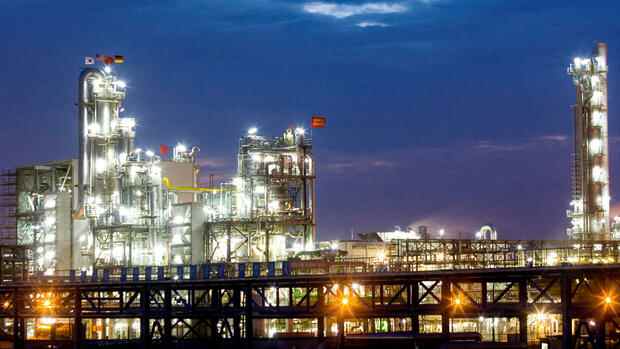The chemical giant BASF has been active in China for many years. The group is currently building a new plant there that will be supplied with 100 percent renewable energy.
(Photo: obs)
Dusseldorf The Chinese economy is generally said to have a lot of catching up to do in terms of sustainable management. But if you believe the participants at the Handelsblatt conference “Asia Business Insights”, the People’s Republic seems to be changing radically at the moment. “There is a very clear and structured plan with which China wants to become climate-neutral,” said Sebastian Schulte, CEO of Cologne-based engine manufacturer Deutz, at a panel discussion on Wednesday.
Schulte sees great opportunities for German companies. As an engine manufacturer, Deutz plays an important role in the decarbonization of many economic sectors such as agriculture and the construction industry. “We register a great deal of interest in topics in which we are the technology leaders, such as hydrogen engines,” says the manager.
At the moment, China is still the most CO2-intensive economy in the world. This is also due to the fact that the country relies heavily on coal for its energy supply. But by 2030 at the latest, the country wants to reduce the consumption of fossil fuels and thus also its CO2 emissions. The People’s Republic wants to achieve climate neutrality by 2060.
pace of climate protection
In order to achieve this, Beijing is already investing many billions of dollars in building a new power infrastructure and expanding renewable power sources such as solar and wind energy. According to the International Renewable Energy Organization (Irena), no other country is setting a similar pace as the People’s Republic: In 2022 alone, new solar systems with a total output of 108 gigawatts are to be built in China. The expansion in the current year corresponds to about half of the total electricity demand in Germany.
Top jobs of the day
Find the best jobs now and
be notified by email.
From the point of view of Bettina Schön-Behanzin, regional representative for Asia at the Freudenberg family business group and Vice President of the European Chamber of Commerce in China, this offers a wide range of sales potential for German companies.
“Siemens and Bosch are already helping to set up the Chinese power grid,” says the business representative. Another important growth area is energy storage technology, in which German industry plays a leading role.
Future market hydrogen
One example of this is the hydrogen engines from Deutz, which after the planned series launch in 2024 will initially not be used in vehicles but in power generators – and are therefore suitable for decentrally converting the hydrogen produced in the future when there is a surplus of electricity back into electricity.
“This is very interesting for China as a large country,” said Deutz boss Schulte. He even expects that the People’s Republic could succeed in building a hydrogen economy much faster than others. “With technologies such as e-mobility, we see that China is making much faster progress than the USA or even Europe.”
This is also due to the fact that the government in Beijing is more pragmatic about transition technologies. “If not enough green hydrogen is available, hydrogen that is not produced in a climate-neutral manner is used there at times and then gradually replaced.”
Experts like Arvea Marieni agree with Schulte. “I expect hydrogen to play a noticeable role in China in five years,” said the researcher, who works for the think tank Brainscapital and the Regenerative Society Foundation.
More: German companies are reassessing their engagement in China
